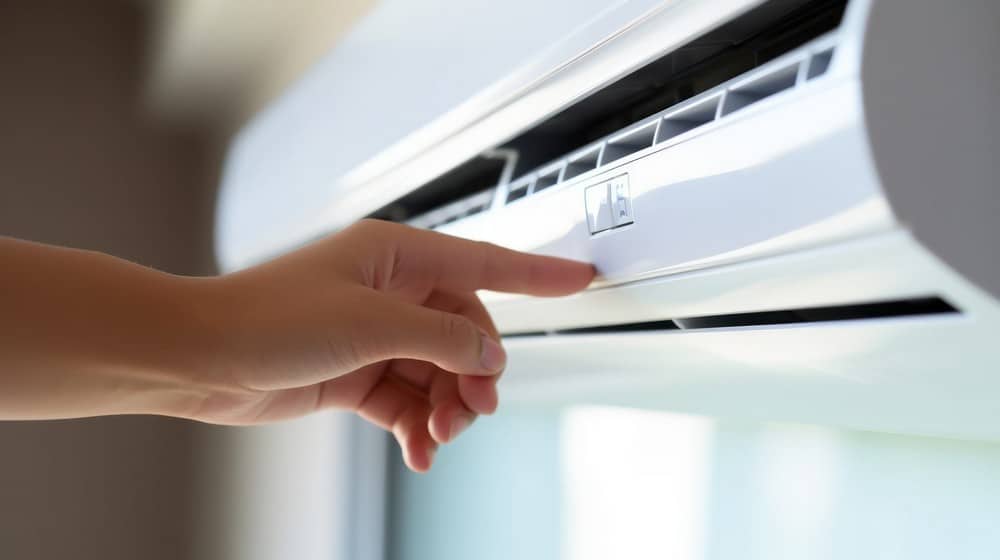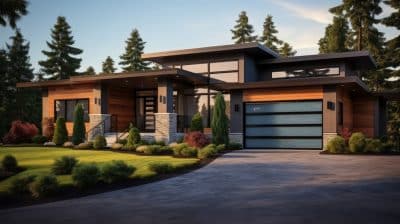As the summer heat rises, air conditioning systems become vital for comfort and productivity. The relentless sun, elevated humidity levels, and prolonged heat waves put an added burden on air conditioning systems, making them work harder and longer. This increased reliance can expose various common issues that homeowners may face. Identifying and addressing these problems early can prevent costly repairs and ensure a cool, comfortable living environment. Understanding these challenges is crucial for effective management, especially during the peak summer months.

Refrigerant Leaks
One of the most prevalent issues affecting air conditioning units is refrigerant leaks. Air conditioning systems rely on refrigerant to cool the air effectively. When there is a leak, the system cannot maintain optimal pressure, leading to decreased performance and uneven cooling. This can cause the unit to work harder, which raises energy costs and accelerates wear and tear. Detecting a refrigerant leak often requires professional assistance, as it can be invisible to the naked eye.
Topping up refrigerant without fixing the leak may only provide a temporary solution, and it’s often considered a stopgap measure. Homeowners should schedule regular maintenance to ensure all components are functioning correctly. Professional inspectors can pinpoint any leaks, which conserves energy and prevents adjustments that can further impair the system’s efficiency. Regular checks will ward off unpredictable breakdowns during scorching summer days.
Faulty Thermostat
A malfunctioning thermostat can lead to significant problems in how your air conditioning system operates. Thermostats are critical for maintaining the desired temperature in your home. When they fail, they may not read temperatures accurately or may not communicate correctly with the system at all. This can result in uneven cooling, where some rooms might feel hot, while others are cold. Homeowners may find it difficult to pinpoint whether the issue lies with the thermostat or the unit itself.
Replacing batteries often solves minor problems, but persistent issues may require a complete thermostat replacement. In some cases, smart thermostats offer better control and energy efficiency, allowing users to set schedules and temperatures remotely. Upgrading to a smart thermostat is a worthwhile investment, ensuring consistent temperatures and potentially lowering energy bills.
Clogged Filters
Air filters play a crucial role in the efficiency of air conditioning systems. They trap dust, pollen, and other airborne particles, and allow the system to breathe. When these filters become clogged, airflow is restricted, forcing the HVAC system to work harder than necessary. This can lead to increased energy consumption and wear on the system. Clogged filters can contribute to reduced indoor air quality, which could exacerbate allergies or respiratory issues.
Regularly changing or cleaning filters, ideally every month, can alleviate these concerns. Homeowners should consider investing in high-efficiency filters that capture smaller particles and provide cleaner air. It’s essential to remember that a little maintenance goes a long way; routinely checking filter conditions can save on costly repairs later.
Electrical Failures
Electrical issues are another significant concern for air conditioning systems, particularly during the intense summer months. Problems can range from circuit breakers tripping to complete system failures. Issues in the electrical components can prevent the air conditioner from starting. These failures can lead to burnt-out motors, malfunctioning capacitors, or damaged wires. Proper maintenance can help address some wear and tear, but regular inspections are crucial.
Deteriorating electrical connections can pose safety hazards and should be dealt with immediately. Homeowners often overlook the electrical system’s health, but consulting professional services such as Air Conditioning Repair Owensboro, Ky can prevent severe issues. Should these problems arise, timely air conditioning repair services can quickly restore functionality and ensure safety. Investing in surge protectors and regular electrical system inspections can add a layer of protection.
Insufficient Cooling
Sometimes, air conditioning units operate but fail to cool spaces effectively. This issue can stem from various factors, such as improper sizing, duct leaks, or inadequate maintenance. If an air conditioner is too small, it cannot effectively cool a home, while oversized units may cycle on and off too quickly, failing to dehumidify effectively. Understanding how your system was initially designed can provide insight into necessary changes.
Regular duct inspections are essential, as leaks can lead to significant energy waste. Homeowners should ensure that their units provide efficient cooling that matches their specific needs by consulting with experts in HVAC management. Identifying root causes in the early stages can lead to a more pleasant living environment and lower energy costs. Cleaning air ducts, sealing gaps, and ensuring proper insulation can make a noticeable difference in cooling performance.
Unusual Noises
Sounds coming from an air conditioning unit can indicate a range of issues, from minor to severe. Banging, clanking, and hissing noises are often signs of mechanical problems requiring additional inspection. Objects may be trapped in the system, causing disturbances, or parts may simply be wearing down. Regular monitoring can help mitigate risks, as timely interventions can prevent complete mechanical failures.
If unusual sounds persist, contacting professionals is advisable, as they can diagnose the issue effectively. Operating without addressing noise concerns can lead to mounting repair costs and discomfort in the home. In some cases, unusual noises may indicate loose parts, motor issues, or even refrigerant problems. Addressing them promptly is beneficial for your wallet and for long-term system health.
Condensate Drain Issues
Another common issue arises with the condensate drain, which is responsible for removing moisture from the air conditioning system. Clogs can result in excess water pooling, creating potential damage to your cooling system and indoor environment. This issue often arises from dirt, mold, or algae blocking the drain line. When water accumulates, it can lead to leaks, which in turn can cause mold growth in surrounding areas.
Regular maintenance, including cleaning the condensate drain line, will prevent these problems. Homeowners should ensure that their AC units are inspected and serviced regularly to ensure optimal function. A clean drain line contributes to smoother functioning and greater longevity of the unit. Ignoring condensate drain issues can result in water damage, bad odors, and health risks, especially for those with asthma or allergies.
Poor Airflow
Poor airflow can create hotspots in your living space and signify problems within the AC unit or the ductwork. Blocked ducts, bad insulation, or even improperly installed units can restrict airflow. Noticing significant temperature discrepancies between rooms may indicate substantial underlying issues. Homeowners should routinely check air vents and registers to ensure they are not obstructed.
Proper maintenance of ductwork will go a long way, ensuring that cooled air circulates efficiently around the home. Engaging HVAC professionals can help identify underlying issues and implement effective solutions, enabling a balanced cooling system. A zoned system may be a worthwhile investment for large homes, as it ensures each area receives the right amount of conditioned air.
Old or Inefficient Units
Many homeowners contend with aging air conditioning systems, which become less efficient over time. Older units may struggle to cool effectively while consuming higher amounts of energy. Such inefficiency may hint that a replacement should be considered. Evaluating the current system’s energy efficiency ratio (EER) can provide insights into its performance. If this ratio is low, it may warrant replacing the system with a modern, energy-efficient setup.
This change can significantly decrease energy bills and enhance comfort. Working with professional HVAC companies can provide insights into the most suitable units for specific needs and preferences. Newer systems often come equipped with advanced features such as variable-speed motors, smart thermostat compatibility, and eco-friendly refrigerants.
Lack of Routine Maintenance
Regular maintenance remains crucial in ensuring any air conditioning system operates at peak efficiency. Neglecting this upkeep can accelerate many common problems. Scheduling annual professional check-ups guarantees systems are cleaned and inspected, which prolongs their functional lifespan. Technicians can spot potential issues before they evolve into emergencies. Homeowners benefit from education on how to manage their systems through user-friendly practices.
Those who engage a service company will likely notice fewer breakdowns, lower energy costs, and improved climate control. Preventive measures are essential to maintaining comfort during the sweltering summer months. Simple actions such as checking thermostat settings, clearing debris from outdoor units, and ensuring refrigerant levels are within optimal range can make a substantial difference.
Unclean Coils
Dirty evaporator and condenser coils can seriously affect an air conditioner’s performance. These coils facilitate heat exchange, and when they are covered in dirt and grime, it can hamper their ability to cool air effectively. This inefficiency forces the unit to work harder, which can lead to overheating and potential system failure. Regular cleaning of these coils is vital; this should be addressed during routine maintenance sessions.
Homeowners should consider adopting preventive measures to limit the accumulation of dirt and dust around outdoor condenser units. This proactive approach ensures optimal cooling and keeps energy bills manageable. Protective covers and maintaining a clean outdoor space can further safeguard your AC unit from excessive grime buildup.
Inadequate Insulation
Finally, inadequate insulation can play a major role in your air conditioning system’s performance. If your home is not properly insulated, cool air will escape, leading your unit to work harder to maintain desired temperatures. This results in inefficiency, higher energy bills, and uncomfortable indoor climates. Homeowners should assess their property’s insulation levels, particularly around windows and doors.
Considerations for improving insulation might include caulking, sealing, or investing in energy-efficient windows. Accumulating cost-effective improvements here can maximize your air conditioner’s efficiency. Insulation in attics and crawl spaces is particularly important in preventing heat gain, which can otherwise overwork your cooling system.
The Impact of Humidity on AC Performance
Many people overlook the impact of humidity on air conditioner efficiency. High humidity levels make it harder for air conditioners to cool a home because the system has to work harder to remove moisture from the air. This can lead to excessive wear and higher energy consumption. If you frequently experience a muggy indoor environment even when the AC is running, it may be time to consider a system with a built-in dehumidifier or invest in a standalone dehumidifying unit.
Managing indoor humidity is particularly important in regions with subtropical or tropical climates. It makes the indoor environment more comfortable, prevents mold growth, protects wooden furniture and flooring, and contributes to better indoor air quality. Routine maintenance should include checking and cleaning the drain pan and ensuring the system is adequately removing moisture.
DIY Troubleshooting Before Calling a Professional
While some issues require professional HVAC technicians, there are several steps homeowners can take to troubleshoot minor problems. If the system isn’t turning on, check the circuit breaker and thermostat settings before assuming a larger malfunction. If air flow is weak, inspect the filters and vents for blockages. These simple inspections can resolve common problems without incurring service costs.
Listening carefully to the system’s startup and operation sounds can help identify unusual behavior early. Familiarizing yourself with your AC’s typical sounds and performance during normal operation allows for quicker recognition of potential issues. Keeping a basic maintenance checklist and logging any observed irregularities can be immensely helpful when consulting with a technician.

Seasonal Preparation for Summer Use
Preparing your air conditioning system in spring before summer temperatures spike can prevent many of the common problems discussed. This pre-season checkup should include a professional tune-up, which involves inspecting electrical components, checking refrigerant levels, cleaning coils, and testing the thermostat. Doing this proactively rather than reactively often results in smoother operation and lower repair costs.
Homeowners should clear any obstructions like shrubs or debris around outdoor condenser units to ensure proper airflow. Testing the system before the season’s first heatwave allows time to make necessary repairs before the demand for HVAC technicians surges. Making seasonal maintenance a regular part of your home care routine is a proactive strategy that pays off in comfort and cost savings.
Addressing these common air conditioning problems is key to maintaining comfort and efficiency during summer. Understanding the potential issues and performing regular maintenance can enhance performance and lifespan, saving homeowners money and providing peace of mind. Whether it is through proactive maintenance, professional inspections, or timely repairs, taking care of your air conditioning system ensures a comfortable environment all summer long. Investing in quality service, staying informed, and being proactive can go a long way in ensuring your home remains a cool sanctuary amid the summer heat.








